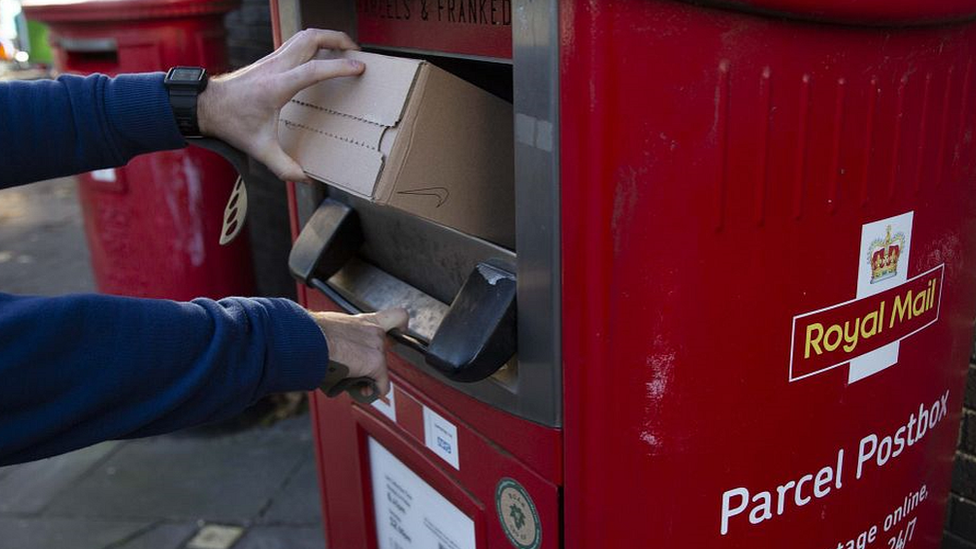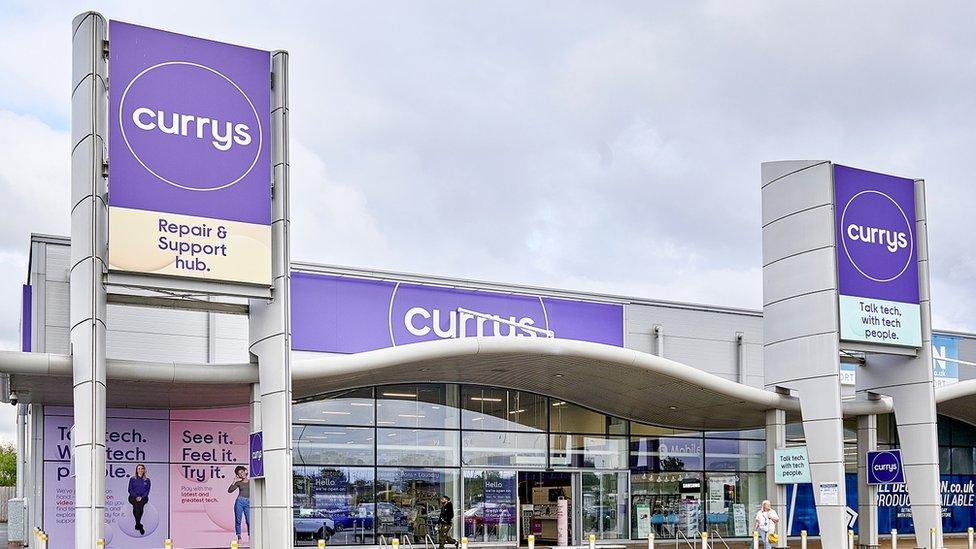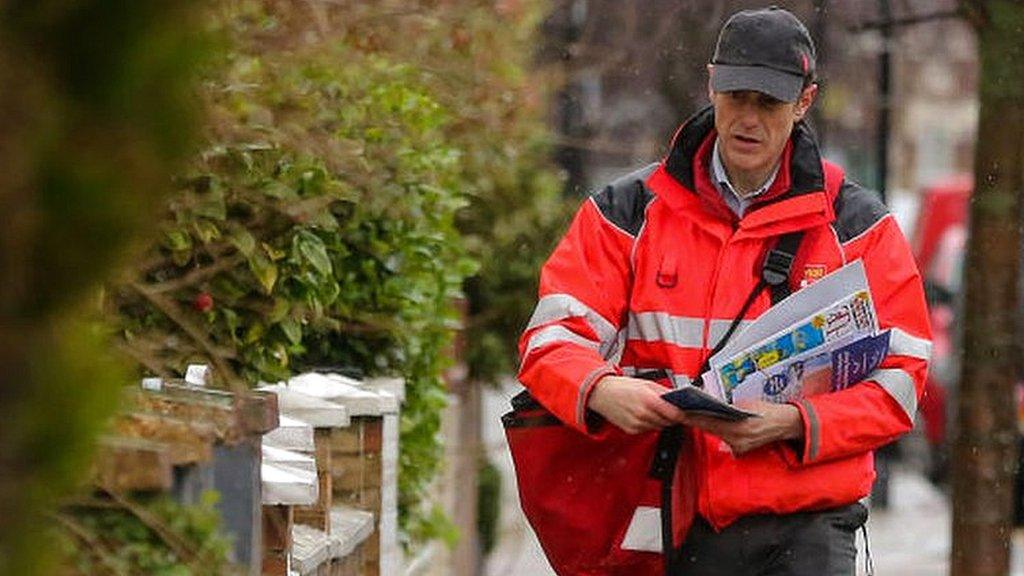Currys drops Royal Mail due to strike action
- Published

Currys has stopped using Royal Mail for parcel deliveries "for now" following a wave of strike action at the postal services firm.
Alex Baldock, chief executive at the electronics retailer, said Currys used Royal Mail for "relatively few, smaller parcels".
The business was "easily switchable to another provider", he said.
Royal Mail has brought forward the last Christmas posting dates in response to the strike action.
Deliveries are likely to be delayed around the days Royal Mail workers are taking strike action on 9, 11, 14, 15, 23 and 24 December, and some shops have advised shoppers to order early to be on the safe side.
Widespread strikes planned for December, at Royal Mail and in other sectors such as the railways, will have a particularly acute impact on retailers in the run-up to Christmas, their busiest time of the year, Mr Baldock told the BBC's Laura Kuenssberg programme.
But he said the temporary switch to an alternative delivery firm would not cause additional problems.
"There's no great drama operationally for us. We plan for this sort of thing all the time," he said.
Workers at Royal Mail have already taken several days of action this year, calling for wage rises to keep pace with inflation, that reached 11% in October.

Mr Baldock said staff at Currys had enjoyed a 16% pay rise over the past year and nearly 40% over the past five years.
"I would love to say it is just because we are nice people, and of course we are, but it is also because we need to retain and motivate a workforce."
He said Currys' staff needed a high level of expertise in order to help customers and the higher wages were the price they were paying "for the right talent".
The Telegraph, which first reported that Currys was switching away from Royal Mail, external, said undelivered post was already piling up in Royal Mail depots.
A spokesperson for Royal Mail said the industrial action was costing the company money and putting jobs at risk.
"We operate in a competitive market, and our customers have choices," they said. "Continued strike action will force our customers to make those choices sooner rather than later."
'Free ride'
Retailers are facing a challenging festive season with many shoppers, facing the soaring cost of living, looking for ways to rein in spending this year.
At the same time, businesses are seeing wage and energy bills rise.
Mr Baldock said there had been a "violent" shift to people buying online in recent years, but that firms like Amazon were still not paying the same level of tax as local businesses.
"There are plenty of UK-based retailers who are paying for the infrastructure on which Amazon are getting a free ride," he said.
Moves made in the Autumn Statement to provide help with business rates, which have a much bigger impact on chains with physical stores, represented progress, but "much more" has to be done, Mr Baldock said.
New measures announced in November will mean brick-and-mortar retailers will pay much lower business rates, while businesses using large warehouses and logistics centres will pay more.
Amazon said the changes announced in the Autumn Statement would result in increased taxes on its warehouse operations.
The firm said in 2021 it had paid £648m in direct taxes, including corporation tax and business rates.
An Amazon spokesperson said if a wider definition of taxes was included, reflecting the tax generated as a result of Amazon's operations, such as VAT and the taxes employees pay on their own earnings, then the firm had paid a total of £2.77bn last year.
Related topics
- Published2 December 2022

- Published7 February 2023

- Published16 November 2022

- Published16 November 2022

- Published25 November 2022

